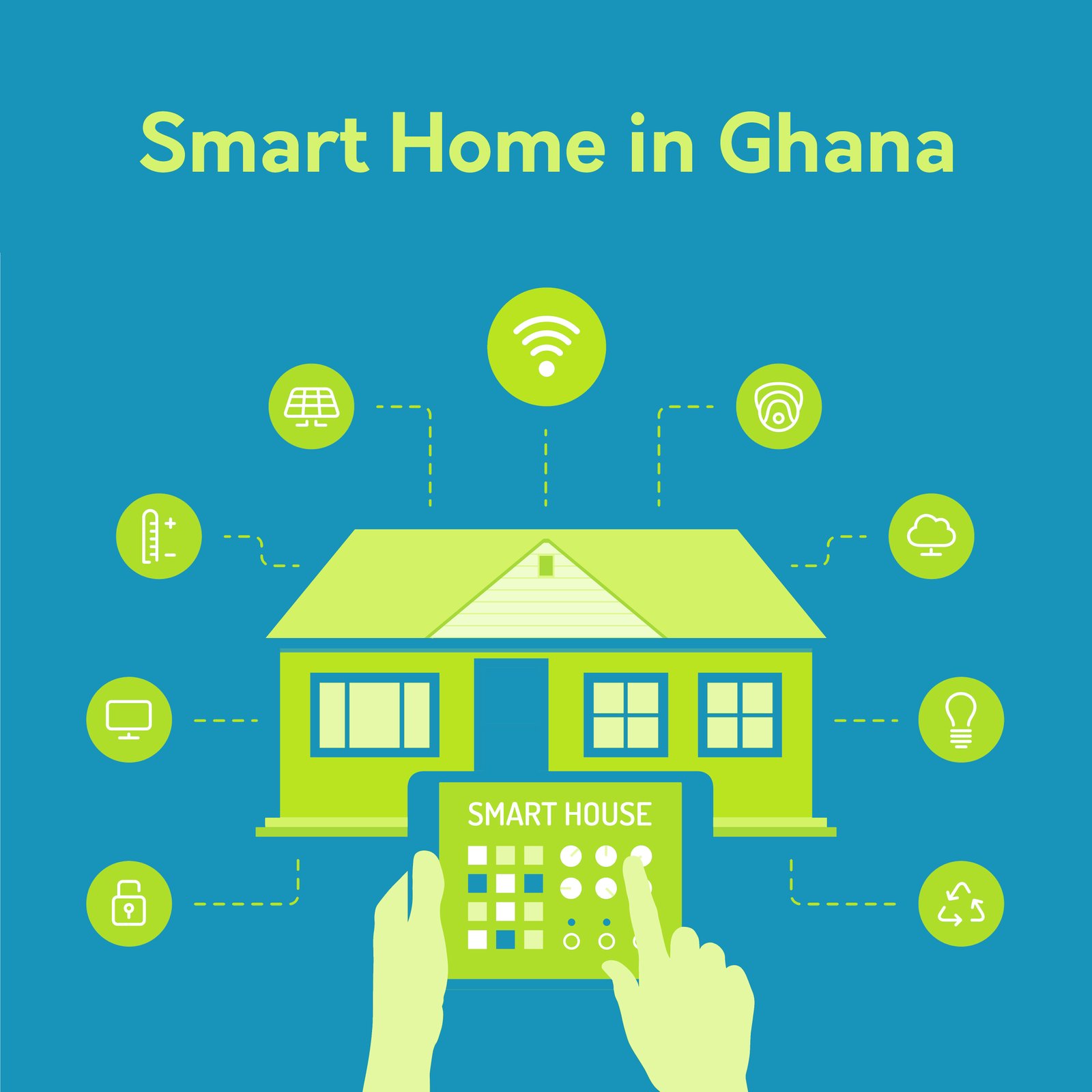The Rise of Smart Homes in Ghana: A New Era in Real Estate
May 22, 2024 5 Minutes Read

In recent years, the concept of smart homes has transitioned from a futuristic novelty to a tangible reality, significantly altering the landscape of real estate globally. Ghana, a country known for its rich cultural heritage and rapidly growing economy, is not left out of this technological revolution. The rise of smart homes in Ghana marks the beginning of a new era in the real estate sector, promising to enhance the way Ghanaians live, work, and interact with their living spaces.
What is a Smart Home?
A smart home is a residence equipped with devices that can be controlled remotely via a smartphone, computer, or a dedicated home automation system. These devices include, but are not limited to, lighting, heating, air conditioning, security systems, and appliances. The integration of these technologies provides homeowners with increased comfort, security, and energy efficiency.
Why Smart Homes are Gaining Popularity in Ghana
- Technological Advancement and Accessibility
Ghana has witnessed significant technological advancements over the past decade. The proliferation of smartphones, improved internet connectivity, and the availability of smart devices at more affordable prices have made smart home technology more accessible to the average Ghanaian. This technological accessibility is a primary driver behind the increasing popularity of smart homes in the country.
- Energy Efficiency and Cost Savings
One of the major benefits of smart homes is their ability to optimize energy usage. Smart thermostats, lighting systems, and appliances can be programmed to operate only when needed, thereby reducing energy consumption and lowering utility bills. In a country where electricity costs can be high and power outages are not uncommon, the energy efficiency offered by smart homes is a significant advantage.
- Enhanced Security
Security is a paramount concern for many homeowners. Smart home security systems, which include features such as surveillance cameras, motion detectors, and smart locks, provide enhanced security and peace of mind. Homeowners can monitor their properties in real-time from anywhere in the world, receive alerts about any suspicious activities, and even control access to their homes remotely.
- Convenience and Comfort
Smart homes offer unparalleled convenience and comfort. From controlling the lighting and temperature to managing household chores with smart appliances, homeowners can streamline their daily routines and enjoy a more comfortable living environment. Voice-controlled assistants like Amazon Alexa and Google Home further enhance the user experience by allowing hands-free operation of various smart devices.
- Rising Demand for Luxury and Modern Living
There is a growing demand for luxury and modern living spaces among Ghana’s affluent population and expatriates. Smart homes, with their state-of-the-art technology and modern conveniences, cater to this demand. Real estate developers are increasingly incorporating smart home features into their high-end projects to attract this segment of buyers.
Challenges to the Adoption of Smart Homes in Ghana
While the benefits of smart homes are numerous, there are challenges to their widespread adoption in Ghana.
- High Initial Costs
The initial cost of setting up a smart home can be high. Although prices of smart devices are gradually decreasing, the cost of integrating a comprehensive smart home system remains a barrier for many potential buyers.
- Internet Connectivity
Reliable and fast internet connectivity is crucial for the optimal functioning of smart home systems. While Ghana has made significant strides in improving internet infrastructure, there are still areas where connectivity issues persist.
- Awareness and Education
There is a need for increased awareness and education about the benefits and functionalities of smart homes. Many potential buyers may not fully understand how smart home technology can improve their lives and save costs in the long run.
The Future of Smart Homes in Ghana
Despite these challenges, the future of smart homes in Ghana looks promising. As technology continues to evolve and become more affordable, the adoption rate of smart homes is expected to rise. Real estate developers and technology companies are likely to collaborate more closely to create innovative solutions tailored to the Ghanaian market.
Integration with Sustainable Practices
There is also a growing trend towards integrating smart home technology with sustainable practices. Solar-powered smart homes and water-efficient systems are becoming increasingly popular as homeowners seek to reduce their environmental footprint and reliance on non-renewable energy sources.
Government and Private Sector Initiatives
Government initiatives aimed at promoting digital transformation and smart city projects are likely to boost the adoption of smart home technology. Additionally, private sector investments in tech-driven real estate projects will further drive the growth of smart homes in Ghana.
Conclusion
The rise of smart homes in Ghana signifies a new era in the real estate sector, characterized by enhanced convenience, security, and energy efficiency. While there are challenges to overcome, the benefits of smart homes make them an attractive option for the modern Ghanaian homeowner. As technology continues to advance and become more accessible, smart homes are poised to become a staple in Ghana’s real estate landscape, offering a glimpse into the future of living. At RESC, we are committed to staying at the forefront of this technological revolution, providing our clients with the latest in smart home solutions and ensuring that they enjoy the full benefits of modern living.
